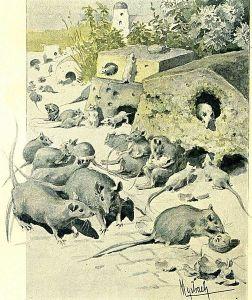Do animals laugh?The question sounds innocuous enough, and when my wife played me a RadioLab episode on that very question, the conclusion, although cautious, was that at least rats and chimpanzees do.This is an instance in which the very question strikes me as terribly speciesist.Despite the fact that evolution suggests otherwise, Homo sapiens are constantly seeking that fabled northwest passage that will separate us from animals once and for all.One by one, over the decades, the defining traits have fallen aside.Animals make and use tools, they build dwellings with ornaments, they solve puzzles, they communicate, and they laugh.Were we not so obsessed with our own greatness (and consider whom we’ve elected over the past few years!) we might easily recognize that we have evolved to be what we are.
Perhaps it’s because we wish to retain our right to exploit animals.After all, eating animals is big business and it’s harder to eat someone who’s not so very different from you.In our culture certain animals are taboo for fodder: dogs, cats, and horses, for example.This isn’t universally the case, and knowing that animals laugh might just make it a little worse.We like to think animals “react” using “instinct” rather than respond with genuine emotion.Until we fuss and fawn over Rover, and accept his affection as genuine.Consciousness can be quite a burden to bear.Funny, isn’t it?
We accept evolution up to a point.Is it any wonder then that creationists still are a force with which to contend?Often we fail to recognize that science, as it has developed in the western hemisphere, gestated in a largely Christian context.The reason for drawing a hard line between animals and humans is ultimately, in this setting, biblical.We’ve moved beyond the idea of God creating each separate species one-by-one, but we haven’t gotten beyond the literal truth of Adam naming and dominating them.If we don’t consider the biblical origins of these ideas they continue unchallenged, even into the laboratories and sterile rooms of today.It makes us a bit uncomfortable to consider just how influenced we still are by the Good Book.At the same time we consider its meta view on the biological world, even as the evidence continues to pile up that little, if anything, really separates us from our faunal kin.Try explaining that to the rats.That sound you can’t hear without special equipment, by the way, is their laughing.

